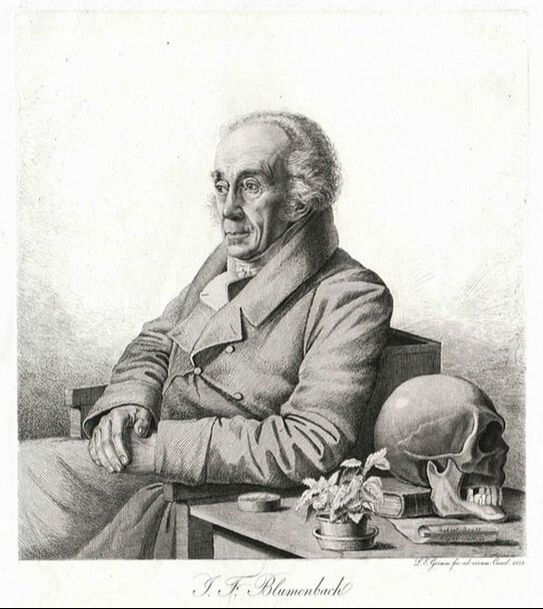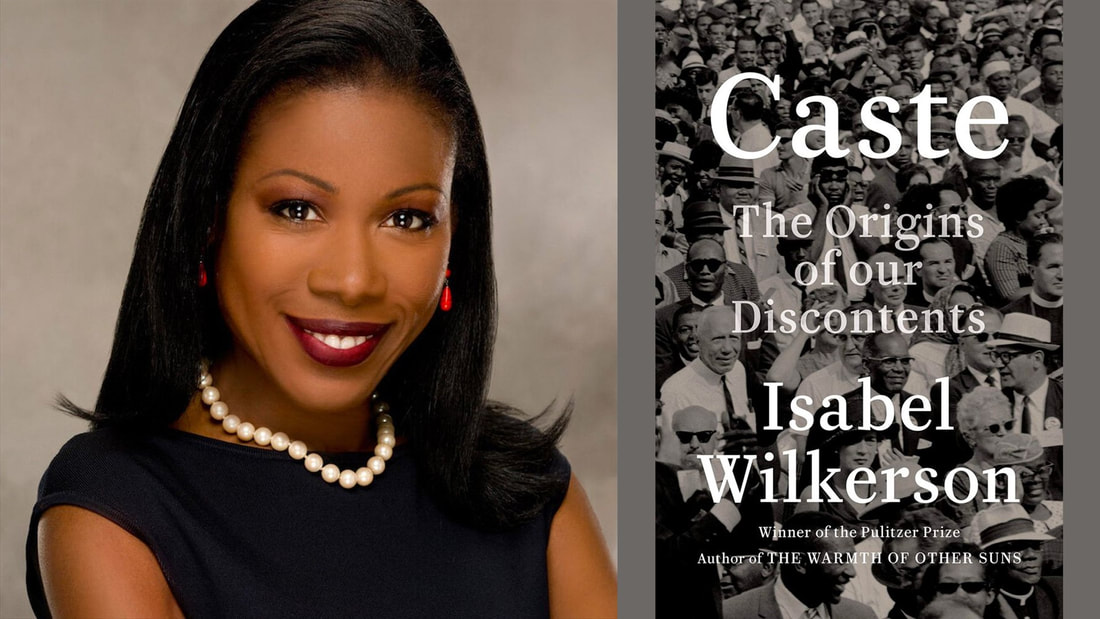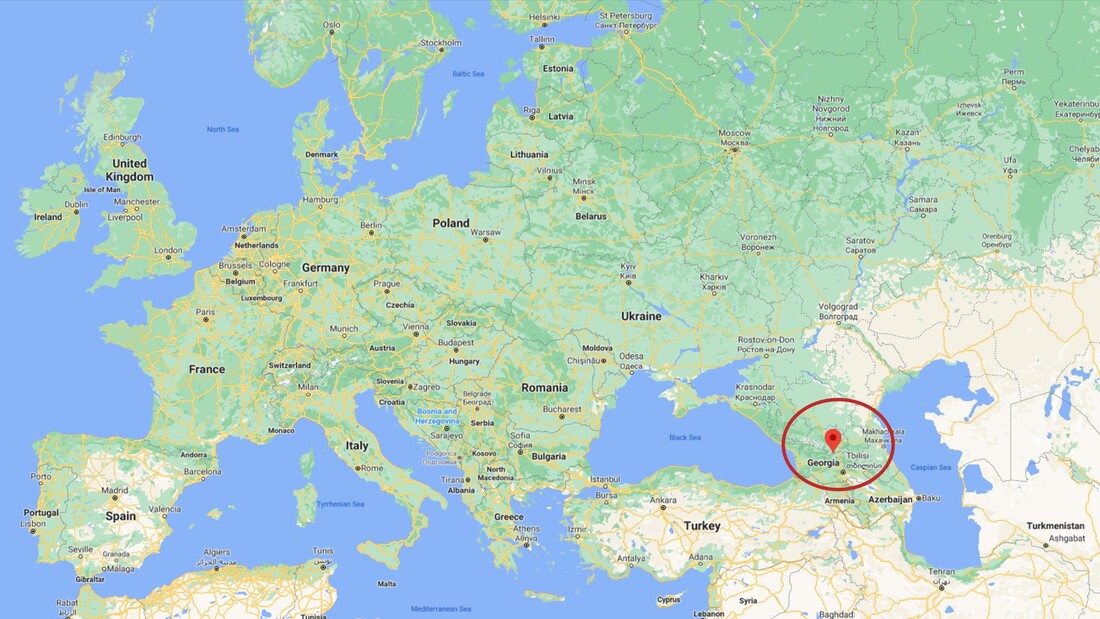Scott AndersonGenesis 1:1-5 † Psalm 29 † Acts 19:1-7 † Mark 1:4-11 A video version of this sermon can be found here.
Dr. Blumenbach, examined his collection of skulls from throughout the world and he judged that the most beautiful skulls came from the area around the Caucasus Mountains. Judging these the most extraordinary of all, he decided to classify the skull Caucasian, and to name the group to which, unsurprisingly, he himself belonged as Caucasian, which has, of course, come to define those northern-European lighter-skinned people we now often call “white.” Here, in his moment of epiphany, Blumenbach judged that the most beautiful and perfect of all the human cohorts was Caucasian--his people—even though the skull that was the basis for his judgment came from a far-off region nowhere near his birth home. This is especially galling, I think, because the people who originate from the region of the Caucasus Mountains, actual Caucasians per the good doctor’s classification system have, in the 20th century, had the most difficult time gaining entry and citizenship in the United States.[i] In her book, Wilkerson shows us that there is, of course, a direct line between the work of Dr. Blumenbach and the myth of whiteness, which was an invention, an innovation of an artificial human hierarchy that elevated British and Western Europeans to the top of a multi-layered caste structure in the New World. The caste system was and is a tool for seizing privilege and supremacy, nothing more. And it is supported by an often invisible or even hidden infrastructure that maintains, reinforces, and authenticates an artificial grading of human value and the inequality and injustice and disparities that follow from it and that we continue to live with to this day in this country as, perhaps, our original sin. It is the very system that led an angry mob up the stairs and into the hallways and offices and chambers of the capitol this week fully believing themselves justified and deserving victors despite all evidence to the contrary. It was the same group that believes the lies we’ve been told continually that only white votes count, and black votes are suspect and invalid on their face.
The American caste system was shaped primarily for the purpose of validating the enslavement of those who were ripped from their homes in Africa where they were Igbo or Yoruba or whatever terms they used in their ethnicity and identity, to their arrival in chains at the port of Charleston. It was only when they entered the multilayered caste structure of the New World that they had to think of themselves as black against the whiteness of their enslavers. There was no blackness, there was no whiteness before the transatlantic slave trade. There were Irish and Germans, Poles and Hungarians. Wilkerson documents for us how they only thought to think of themselves as white with the creation of a new country and a new culture in which all of these people had to figure out how to interact with one another. In the New World this manufactured caste system was thrust on all who entered, who, upon their arrival discovered they were assigned to a particular category whether they wished it or not. The top and bottom was clear. Those brought in chains, who became black upon entry were at the bottom of the caste, and those who created the system, the British and Western Europeans were at the top. But there were many gradations in the middle, and, according to Wilkerson: “Anyone who entered that caste system had to then navigate and figure out, how were they going to manage? How were they going to survive and succeed in this caste system?” The vast territory in-between the top and the bottom of the caste system may be the most important landscape for us to examine if we are to understand what is happening today and the alternate identity and the hope for renewal offered to us in the baptism of Jesus and we who step into those same waters downstream of it. You see, the American caste system creates an artificial hierarchy that has set us against each other for over four hundred years in this country. And I suspect it has been used by the elite to insulate themselves from everyone else by creating a mob of people in the middle ranks who are encouraged to imagine themselves—ourselves, we might say—better than some. In so doing, in our shaping to be entitled, we become a powerful tool for maintaining a system that has reliably directed the vast majority of wealth and income to an increasingly small group of people, to the detriment of all, and the instability of our life together. Consider the language that is used through the duration of the current administration by those in power to enrage and mobilize the army of supporters, who despite their relatively modest means are convinced they are entitled to determine the winners and losers for all of us. . Consider the system that protects whiteness while constantly endangering blackness. Who among us would be willing to claim that had it been Black people breaking in and roaming the capitol and occupying offices and the speaker’s chair on Wednesday that the halls would not be red with their blood? What we saw on Wednesday, the Feast of Epiphany was the revealing, the unveiling, the literal expression of white supremacy—that under this American caste system white people believe we have dominion over everybody and everything, and that in that fragile, baseless claim there may be no limit to what we will do in our willingness to colonize and claim what is not ours. The baptism of Jesus is a baptism of repentance. It understands that our future well-being is welded to our honesty in naming and repenting of what destroys us—and making restitution to right what is wrong. We renounce the spiritual forces of wickedness. We reject the evil powers of this world. We resist evil, injustice, and oppression in whatever forms they present themselves. Even and especially if we, if you, if I, must renounce the very system that elevates whiteness and maleness as the paragon of humanity. And I believe we must. Do you? Resolutely, continually, faithfully, we must renounce it. Loudly we must renounce it. Together we must renounce it. Not just because it is a lie, but because it is destroying us. Because it will never deliver what it promises. Because it only plunges us into an abyss of despair and mediocrity. To consider baptism is to consider the shape of the life we take on—wisdom enfleshed—the practical ways in which we adopt routines and habits and manners and commitments that genuinely reflect what we understand to be life-giving and of value that grows from the understanding God has created all things good. “Who do you say that I am?” Jesus asks his disciples. But even before he asks them, God has already given God’s answer to the question in the baptism of Jesus: “You are my beloved, with you I am well-pleased.” Before he had done anything, before his ministry even began, the message was plain: he was loved, right then and there, just as he was—no external system to justify it, no message that required him to measure it against others, no merit system to navigate. It just was. It just is. And more than being loved, he was liked: in you I am well-pleased, I am delighted. I take some comfort that Mark makes it unclear whether it was only Jesus who heard the skies speak or if everyone did. In other gospels it is clearer, but here it is uncertain. That’s important because it turns the attention to those who dare to step into these same waters downstream of this beloved one to reaffirm the same is true of us—of all of us. The light of God’s love shines on us too. All life has sacred value. And this is important, this is vital, this is essential for us to remember, for the church to proclaim, because the way is not easy. Mark wastes no time. From here Jesus is immediately thrust into the wilderness where he is tempted, and it doesn’t get better. And yet, it is good. It is very good as the Spirit that hovered over the waters and spoke from the sky makes clear. The culture of the Christian life as defined in baptism is one of possibility, of new beginnings, of belonging no matter the architecture of our skulls or the shade of our skin. And the way of the Christian life as defined in baptism is one of love and like, of self-giving and delight. “Darkness cannot drive out darkness:” King reminded us, “only light can do that. Hate cannot drive out hate: only love can do that.’ We must dismantle every system that suggests otherwise if we are to be well. May we do so with courage and conviction, swimming as we are in a sea of love and possibility. Amen. Notes: [i] This summary is drawn from “It’s More Than Racism: Isabel Wilkerson Explains America’s ‘Caste’ System.” NPR, August 4, 2020. Retrieved on January 6, 2020 from: https://www.npr.org/2020/08/04/898574852/its-more-than-racism-isabel-wilkerson-explains-america-s-caste-system.
0 Comments
Leave a Reply. |
St. Andrew SermonsCategories
All
|



 RSS Feed
RSS Feed